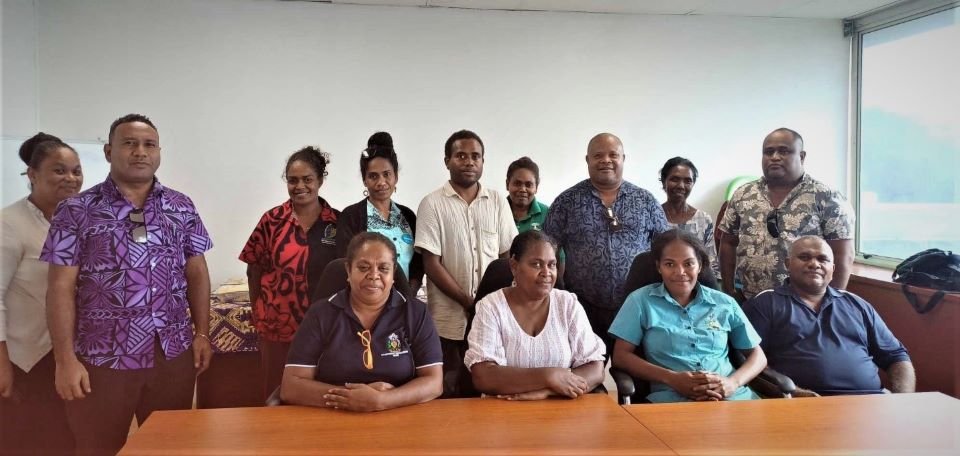
THE Ministry of Home Affairs was acknowledged for the progress made toward mainstreaming disability in hosting two of the country’s biggest recent events.
These include the hosting of the 2023 Pacific Games (SOL 2023), guided by the Solomon Islands National Sports and Recreation Policy 2021-2035, which supported the participation of persons with disabilities in parasports, and the preparation for the 2024 National General Election (NGE), under the implementation of the Gender Equality and Social Inclusion (GESI) Policy 2022-2024, which ensured that persons with disabilities and the elderly were given equal and equitable opportunities to exercise their political rights to vote and choose leaders of their choice.
This was highlighted during a Disability Inclusion Awareness and Policy Dialogue session with the Ministry of Home Affairs, held on Friday afternoon, 21 September 2024, in collaboration with the Ministry of Health and Medical Services (MHMS) under the National Rehabilitation and Disability Division, supported by the WHO Country Office. The session covered awareness of the Solomon Islands National Disability Inclusive Development Policy 2023-2031 (SINDIDP), the United Nations Convention on the Rights of Persons with Disabilities (UNCRPD), promotions of equity in systems and services, and mapping of disability-inclusive frameworks and stakeholders.
Deputy Secretary Corporate and Special Duty, Mr. Freddie Ota’au, in his contribution during the session, appreciated the informative presentation shared and highlighted that at its core, the disability issue is a matter of humanity. He stated that many areas of government public services are not accessible to persons with disabilities or people who experience impairments.
However, he noted that the government, with a sense of responsibility and political will, has taken steps by ratifying the UNCRPD and advancing the Solomon Islands National Disability Policy. This policy sets up the implementation structure to ensure that the needs of persons with disabilities are realized, extending the government’s efforts down to its institutions and the community level to promote inclusion.
Mr. Ota’au also recognized that inaccessible public service infrastructure denies the rights of persons with disabilities to access government services, and the high cost of utilities further compounds this issue. He added that persons with disabilities are disadvantaged during employment recruitment interviews, as they are often assessed based on their disabilities rather than their abilities. He emphasized that while disability inclusion has already been mainstreamed in sports and elections, the ministry will now focus on ensuring that all public services under the ministry accommodate the needs of persons with disabilities. He further noted that the ministry’s strategic plan, due for review next year, will ensure that all services offered by the ministry consider disability inclusion.
Deputy Secretary Technical, Mr. Walter Diamana, highlighted a concern regarding the evolving concept of disability. He noted that while the presentation on disability and the application was clear, the definition of disability might be subject to abuse in the future as society changes. He stressed the importance of being cautious, as rights come with responsibilities. Mr. Diamana pointed out that some individuals might behave irresponsibly, acquire disabilities as a result, and then demand rights in ways that could be unfair to others. He emphasized the importance of carefully defining the boundaries of disability within the legislation as part of the UNCRPD domestication process to protect its purpose.
The session was appreciated for providing an avenue for exchanging information and raising awareness that disability inclusion benefits the entire population. MHMS National Rehabilitation and Disability Division Director, Mrs. Elsie Taloafiri, concluded the discussion by encouraging everyone to start thinking about inclusion and accessibility in their homes, workplaces, and communities. She also expressed MHMS’s sincere appreciation to the Ministry of Home Affairs, particularly Deputy Secretary Special Duty Mr. Freddie Ota’au and HRM Ms. Catherine Tugumana, for organizing the session and facilitating the officers’ participation, which advanced the agenda of disability inclusion in the public sector.